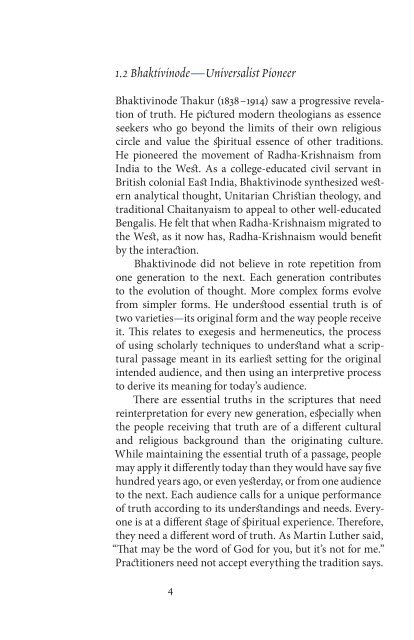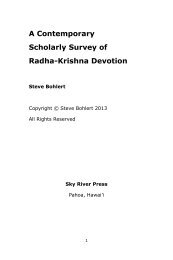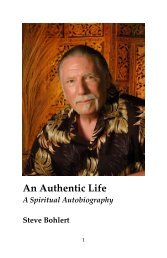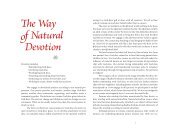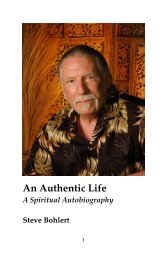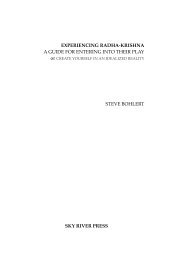Introduction PDF - Universalist Radha-Krishnaism
Introduction PDF - Universalist Radha-Krishnaism
Introduction PDF - Universalist Radha-Krishnaism
You also want an ePaper? Increase the reach of your titles
YUMPU automatically turns print PDFs into web optimized ePapers that Google loves.
1.2 Bhaktivinode—<strong>Universalist</strong> Pioneer<br />
Bhaktivinode Thakur (1838–1914) saw a progressive revelation<br />
of truth. He pictured modern theologians as essence<br />
seekers who go beyond the limits of their own religious<br />
circle and value the spiritual essence of other traditions.<br />
He pioneered the movement of <strong>Radha</strong>-<strong>Krishnaism</strong> from<br />
India to the West. As a college-educated civil servant in<br />
British colonial East India, Bhaktivinode synthesized western<br />
analytical thought, Unitarian Christian theology, and<br />
traditional Chaitanyaism to appeal to other well-educated<br />
Bengalis. He felt that when <strong>Radha</strong>-<strong>Krishnaism</strong> migrated to<br />
the West, as it now has, <strong>Radha</strong>-<strong>Krishnaism</strong> would benefit<br />
by the interaction.<br />
Bhaktivinode did not believe in rote repetition from<br />
one generation to the next. Each generation contributes<br />
to the evolution of thought. More complex forms evolve<br />
from simpler forms. He understood essential truth is of<br />
two varieties—its original form and the way people receive<br />
it. This relates to exegesis and hermeneutics, the process<br />
of using scholarly techniques to understand what a scriptural<br />
passage meant in its earliest setting for the original<br />
intended audience, and then using an interpretive process<br />
to derive its meaning for today’s audience.<br />
There are essential truths in the scriptures that need<br />
reinterpretation for every new generation, especially when<br />
the people receiving that truth are of a different cultural<br />
and religious background than the originating culture.<br />
While maintaining the essential truth of a passage, people<br />
may apply it differently today than they would have say five<br />
hundred years ago, or even yesterday, or from one audience<br />
to the next. Each audience calls for a unique performance<br />
of truth according to its understandings and needs. Everyone<br />
is at a different stage of spiritual experience. Therefore,<br />
they need a different word of truth. As Martin Luther said,<br />
“That may be the word of God for you, but it’s not for me.”<br />
Practitioners need not accept everything the tradition says.<br />
4


